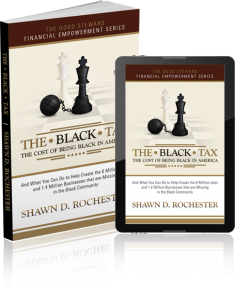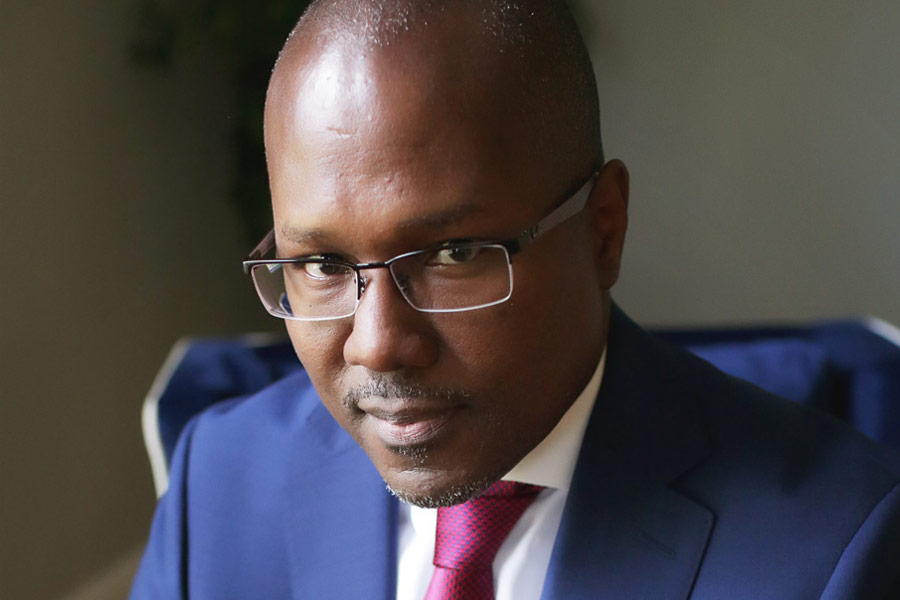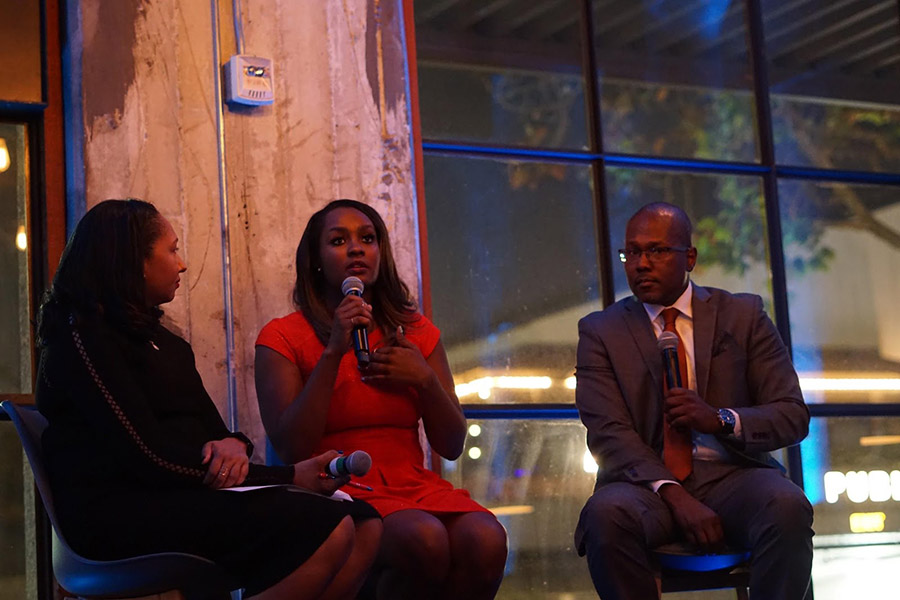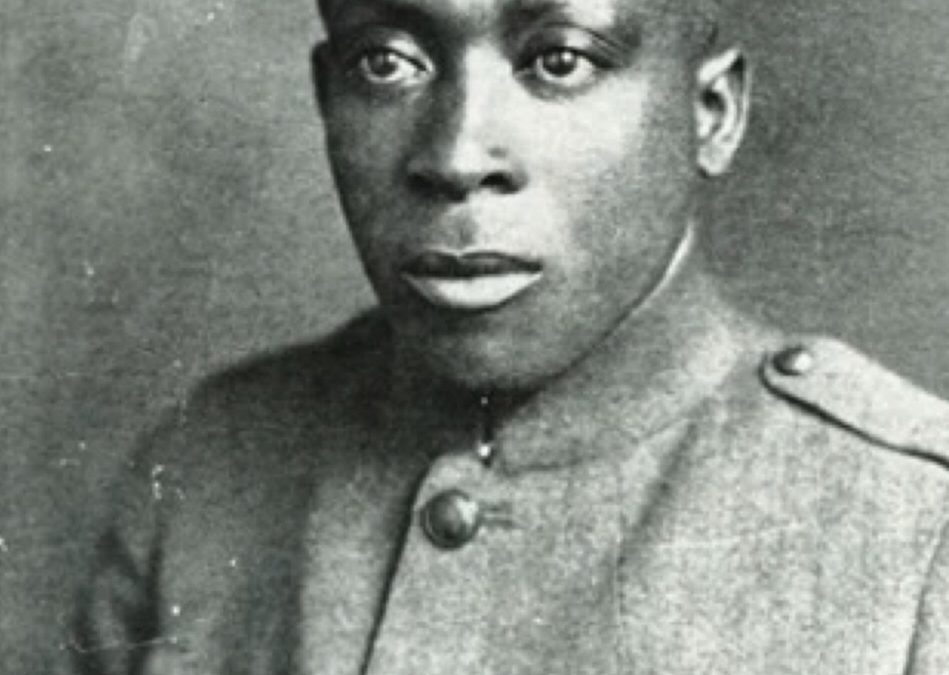Author and personal finance consultant Shawn Rochester, ’02, discusses how to address the financial costs of conscious and unconscious antiblack discrimination.
Personal finance consultant Shawn Rochester, ’02, noticed something curious about the many studies and articles written about racial discrimination.
“Over the years I would read articles and studies about discrimination against black people in various markets—for example, housing, automotive, financial services, the job search, etc.—and the impact of that discrimination just seemed like a tax to me,” he said.
Rochester is CEO of Connecticut-based Good Steward LLC, a financial advisory and education company that uses workshops, coaching, and online courses to help people—mainly African Americans, such as Rochester himself—manage cash flow, eliminate debt, and maximize retirement assets. He sees clients who, despite successful careers, aren’t on track to retire in comfort.
“There is a category of folks whom some would consider to have robust incomes, but they lack information about how to maximize their cash flow or how to reduce debt and maximize their assets at retirement by using vehicles like the tax-deferred retirement plans that are already in place for us,” he said. While these people generally don’t have the balance sheet to attract high-quality financial advice or coaching, they actually could accumulate significant resources if they had access to better information. Rochester’s mother faced a similar problem when she emigrated from Barbados to the United States. “She was a motivated saver but didn’t know what to do and wasn’t around people who could give her good advice,” he said.
In helping individuals with their finances, Rochester became concerned with the broader questions of why the African American community had an ingrained deficit in wealth and what individuals could do about it. This led him to write a book, The Black Tax: The Cost of Being Black in America. Rochester spoke with Chicago Booth Magazine’s Chana R. Schoenberger about solving this problem.
CBM: What is the Black Tax?
Rochester: The Black Tax is the financial cost of discrimination against black people in America by people and/or institutions that have conscious or unconscious antiblack bias.
CBM: Why did you decide to write this book?
Rochester: I wrote The Black Tax because I wanted to help reduce the wealth gap by creating a paradigm shift that would help create jobs and businesses, and expand businesses in the black community by increasing the demand for products, services, and intellectual capital from black people and companies. I knew that simply asking people to buy products and services from black-owned companieswould not be very effective because many people view doing business with black entrepreneurs as a charity or a cost. I learned long ago that if you want people to act differently, you must get them to think differently. So I looked at research from the finest institutions in the country to see if I could quantify the financial costs of past and current antiblack discrimination. The results were shocking because the impact, scale, and continuity of antiblack discrimination was and still is far larger than what most people would have expected. This robust, data-driven approach generally helps readers to see the problem with greater clarity and gets them thinking about what they can do to help solve it.
CBM: The problems you describe seem so overwhelming. Where do you even start?
Rochester: Black people in America own just 2 percent of US wealth. This means that 1.4 million businesses with employees, 6 million jobs associated with those businesses, and well over $8 trillion in wealth that should belong to the black community are simply not there. These gaps in jobs, businesses, and wealth are driving almost all of the socioeconomic problems affecting the black community. So yes, these challenges can appear to be overwhelming.
The first thing we should start with is a focus on what we can do together to help close these gaps. In the final section of The Black Tax, I talk about an economic framework called PHD, which stands for “Purchase, Hire, and Deposit” in ways that create jobs and create and expand businesses in the black community. PHD accomplishes this by ensuring that (1) a greater portion of consumer spending is aimed at black enterprise, (2) black people and businesses are properly represented on payrolls and in supply chains, and (3) more resources are placed in black financial institutions to ensure that these businesses have the capital they need to grow.
This is important because Americans spend very little on black enterprise at all. For example, governments spend less than 2 percent of their supply chain expenditures on black businesses. Corporations and institutions spend less than 2 percent of their supply chain expenditures on black businesses, and even black consumers spend about 2 percent of their collective incomes on black business. In addition to this, only about $4 out of every $10,000 in the US banking system is in a black bank. This dearth of spending with black enterprise stifles job creation and business development in the black community. Because spending and investment levels with black enterprise are currently so low, even small changes in our spending and deposit levels can have an enormous impact on job creation.
CBM: What about diversity programs in hiring and purchasing? Are those working?
Rochester: These programs are well-intentioned but have not been particularly effective. As I’ve mentioned, supply chain spending with black business is extremely low, despite decades of efforts and black participation rates in almost all high-growth, high-compensation fields. And even at these very low participation rates, black people earn far less than their white peers, regardless of their education level. It would be a stretch to claim that these programs are working unless your comparison is the Jim Crow period of legal segregation, where black people were barred outright from participating, regardless of skill or competency level. In those days, the supply chain spend with black enterprise was effectively zero and today it is less than 2 percent. Given the data, and the roughly 74 years since the end of the Jim Crow period, one would be hard-pressed to say that these programs are working. Part of the problem is that terms such as diversity, minority, and inclusion, while well-intentioned, do not mean black. Those terms are generally euphemisms for “not white male.” This is why companies can have “effective” diversity programs while having marginal to no impact on creating jobs and businesses in the black community.
For example, a company could decide to create economic opportunities for women by allocating more of their supply chain spend to women-owned businesses, which is a wonderful thing to do. If we look at women-owned businesses that have employees, we find that they generate about $1.2 trillion a year in revenue. But if we ask how much of that revenue is from black-women-owned businesses, we find that it’s less than 2 percent of the total. So for every $100 of incremental supply chain spend on women-owned businesses, it’s not until the 99th dollar that black women see any benefit.
Knowing this information helps decision-makers better understand the true scope of the problem. Because people associate minority, diversity, and inclusion programs with black people, they tend to think that the major beneficiaries of these programs are black people, which is not the case, particularly when it comes to supply chain spending.
CBM: Are there ways to get more African Americans to start more businesses?
Rochester: Yes, we can certainly create more black businesses and service providers, but the issue is, will there be incremental demand for those businesses? While most people focus on the supply side (i.e., creating more black enterprises), and we certainly need that, what I’m trying to do is focus on the demand side (i.e., creating more demand for black businesses), and that requires a paradigm shift from consumers, corporations, institutions, and governments. Research indicates that the level of antiblack bias in America generally ranges from high to very high, and that bias affects just about every facet of our lives, including commerce, and this is a significant hindrance to business development and job creation.
CBM: How do you get people to buy within their own community?
Rochester: If you look at the historical narrative, black people in America have not had the opportunity to create a critical mass of thriving economic enclaves because we were subjected to a particularly brutal and effective form of economic segregation. This impoverished large swaths of the black population. And, in general, when customers are economically deprived, it’s hard for businesses to thrive, and the costs are much higher. This led to a lower concentration of high levels of business success and caused many people to associate lower quality levels with black businesses, which fueled a bias against black enterprise.
Part of what I want to do is shake that kind of biased thinking and behavior by creating a positive association between commercializing black enterprise and facilitating job creation in the black community. The idea is to stimulate the demand for our products and services and provide the capital to finance the resulting growth. This also applies to the black community, since our spending levels on black enterprise are very low. For example, while the purchasing power of the black community is about $1.2 trillion and supports about 24 million jobs in the US economy, less than 2 percent of that spend is on black businesses, and the vast majority of those jobs are outside of the black community. This—coupled with the fact that the vast majority of the companies who are recipients of black consumer spending (and thousands more who are not) do not practice PHD—further depresses job creation and business development in the black community. At the end of the day, a material shift away from the current 2 percent levels will have a massive economic impact by creating more jobs, businesses, and wealth in the black community.
—By Chana Schoenberger
January 9, 2019
Source: https://www.chicagobooth.edu/magazine/blog/2019/shawn-rochester-the-black-tax
 About the Author – Shawn D. Rochester is the CEO of Good Steward LLC (GSL) and the founder of PHD Enterprises, and the IDEA Institute. These organizations provide financial education and advisory services to consumers, increase the presence of Black employees and enterprises in US public and private sectors payroll and supply chains, and facilitate commerce between the Black business community across the African Diaspora and on the African continent. Shawn has a Bachelor of Science in Chemical Engineering from The University of Rochester and a Master’s degree in Business Administration from The University of Chicago Booth School of Business with a focus in Accounting, Finance and Entrepreneurship. He is the author of The Black Tax: The Cost of Being Black in America and CPR for the SOuL: How to Give Yourself a 20% Raise, Eliminate Your Debt and Leave an Inheritance for Your Children’s Children.
About the Author – Shawn D. Rochester is the CEO of Good Steward LLC (GSL) and the founder of PHD Enterprises, and the IDEA Institute. These organizations provide financial education and advisory services to consumers, increase the presence of Black employees and enterprises in US public and private sectors payroll and supply chains, and facilitate commerce between the Black business community across the African Diaspora and on the African continent. Shawn has a Bachelor of Science in Chemical Engineering from The University of Rochester and a Master’s degree in Business Administration from The University of Chicago Booth School of Business with a focus in Accounting, Finance and Entrepreneurship. He is the author of The Black Tax: The Cost of Being Black in America and CPR for the SOuL: How to Give Yourself a 20% Raise, Eliminate Your Debt and Leave an Inheritance for Your Children’s Children.
 Purchase your copy of the Highly Acclaimed Book The Black Tax: The Cost of Being Black in America here
Purchase your copy of the Highly Acclaimed Book The Black Tax: The Cost of Being Black in America here






Thanks for the article post.Really thank you! Great.
Thanks. And you are most welcome